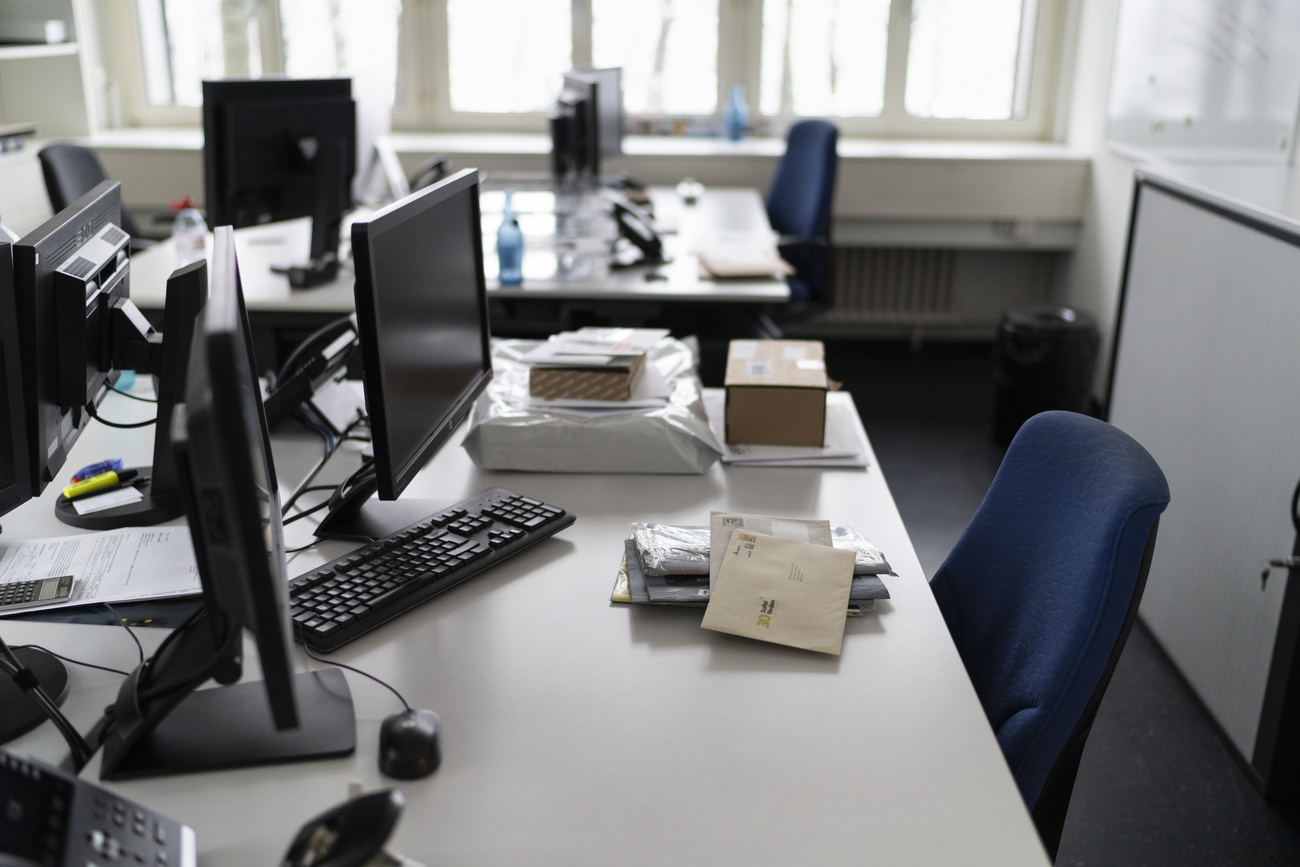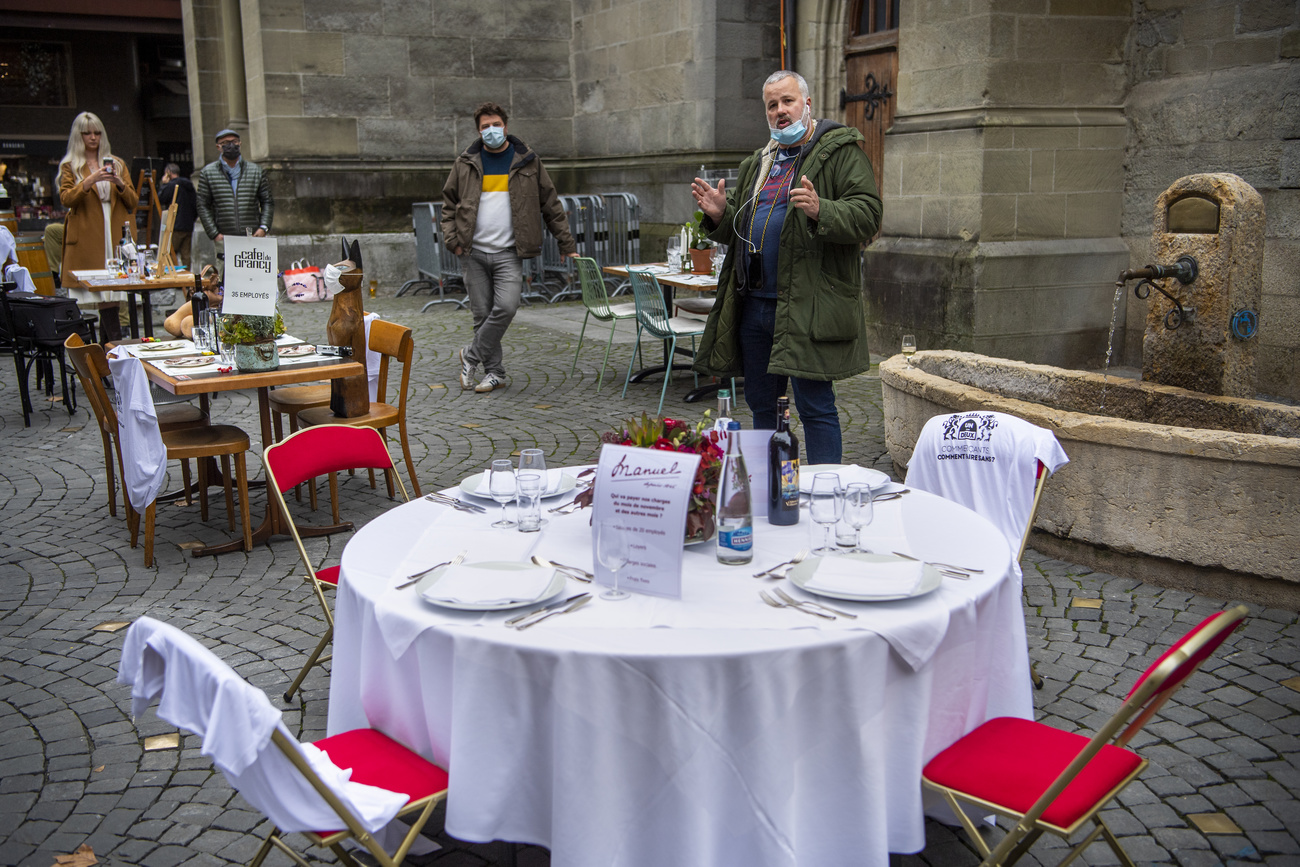
Switzerland seeks return to normality with eased Covid rules

Switzerland plans to allow larger gatherings, re-open wellness centers and let restaurants serve food indoors as the country gets a better grip on the coronavirus pandemic.
“We want to enable a return to normality – and restaurant interiors are part of that,” said Alain Berset, the home affairs minister whose portfolio includes health.
From May 31 restaurants will be allowed to serve groups of up to four people at indoor tables provided they follow strict hygiene and tracing conditions. Wellness centres and spas will also be able to reopen, albeit with limited capacity.
Working from home will become “recommended” rather than mandatory, while the maximum period of entitlement to short-time work compensation was bumped from 18 to 24 months in a bid to save jobs.
The proposals come as Covid-19 indicators show the 7-day average of new cases down by 13% relative to the previous week. Deaths and hospitalisations are also falling, a situation described by Berset as “encouraging”.
However, he said, the proposed openings are “not an invitation to drop everything”.

More
Coronavirus: the situation in Switzerland
Larger gatherings
The government wants to raise the cap on public events like concerts, football matches and theatre performances: from 50 to 100 indoors, and from 100 to 300 outdoors.
The limit for private gatherings will remain the same – 10 indoors, 15 outdoors – regardless of how many members of the group have been vaccinated.
As for work-from-home rules, which along with restaurants were the subject of much discussion leading up to Wednesday’s decision, this will be reduced from an obligation to a recommendation.
Companies that do bring workers back will have to implement a strategy of regular employee testing, the costs of which will be covered by the state.
A cap of 50 students in university lectures will also be scrapped, again under the condition that a credible tracing strategy is put in place.
Quarantine exemptions
People who have been fully vaccinated or who have already recovered from Covid-19 will be exempt from quarantine rules after having come in contact with an infected person, or after returning from a risk country.
The proposals will undergo a two-week consultation process with the country’s 26 cantons, before a final decision is taken on May 26. The government will also make a decision at that stage about future plans for summer events of over 1,000 people.

More
Restaurants to re-open despite high Covid infection rate
Avoiding job losses
By extending short-time work possibilities by six months, the government wants to ensure that as few redundancies as possible are made by the end of August, Economics Minister Guy Parmelin said on Wednesday.
“The catering industry, but also tourism, need time to find a balance,” Parmelin told media in Bern. The goal for the government, however, is that the companies regain their financial autonomy as quickly as possible.
“Companies must be aware that the support of the government will decrease gradually with the re-openings and will one day end,” Parmelin said.

More
Plans outlined for gradual phase-out of anti-Covid restrictions
Three-stage plan
The proposed measures represent the second phase of a three-step plan to exit the pandemic. This second “stabilisation phase” will in theory last until all “adults who wish” are vaccinated, at which point a “normalisation phase” will begin.
The first “protection” phase began on April 19 and combined a range of openings – including outdoor restaurants, cinemas and theatres – with ongoing efforts to vaccinate at least 75% of the at-risk population groups by the end of May.
Some 12.5% of the population have so far been fully vaccinated against Covid-19, while around a quarter have received at least one shot.
Marked benefits have been seen for older age groups: over 75-year-olds now account for less than a quarter of Covid-19 hospitalisations, compared with half during the second wave in winter, the government’s coronavirus taskforce wrote earlier this week.

In compliance with the JTI standards
More: SWI swissinfo.ch certified by the Journalism Trust Initiative




























You can find an overview of ongoing debates with our journalists here . Please join us!
If you want to start a conversation about a topic raised in this article or want to report factual errors, email us at english@swissinfo.ch.